How To Hydrate Your Skin – 10 Best Ways To Stay Moisturized
Learn how to shield your skin’s moisture with intensely hydrating ingredients.
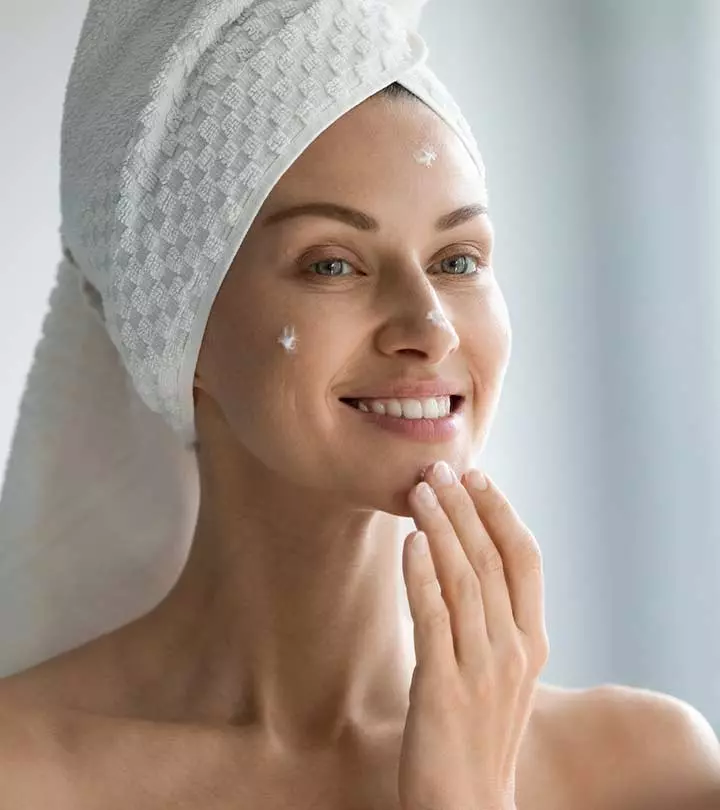
Image: Shutterstock
Skin breakouts can happen even if you have dehydrated skin. Inadequate skin hydration can lead to skin care issues. While dehydrated skin is different from dry skin, both skin types need water to remain healthy and radiant. Hence, it is important to know how to hydrate your skin. In this article, we discuss the difference between dehydrated skin and dry skin and tell you the 10 best ways you can keep your skin hydrated. Keep reading.
In This Article
What Is Hydrated Skin?
Hydrated skin is healthy skin with adequate water content. Your skin’s hydration levels determine its softness and suppleness (1). You need to keep your skin hydrated to maintain its radiance, texture, and tone. Skin dehydration can cause many issues, including wrinkles and dark spots.
Many people confuse dehydrated skin with dry skin. Knowing about dehydrated skin’s causes and symptoms can help you understand how it is different from dry skin. However, below is a section that talks about the difference between the two.
Key Takeaways
- Hydrated skin is healthy, soft and supple skin with adequate water content that helps it to maintain its texture and tone.
- Dehydrated skin lacks water and often looks dull, pale, wrinkly, and may feel itchy.
- Drink plenty of water, avoid long hot showers, exfoliate weekly, use hydrating masks and follow a diet high in water and antioxidant-rich foods to hydrate your skin.
- Hyaluronic acid, glycerin, urea, ceramides, or panthenol in water-based skincare products can help to keep the skin hydrated and supple.
What Is The Difference Between Dehydrated Skin And Dry Skin?
Dehydrated skin lacks water, while dry skin lacks oil. Hence, you can have dehydrated skin even with enough oil or both dehydrated and dry skin at the same time.
The symptoms of these two conditions also differ.
Symptoms of dehydrated skin include:
- Dullness
- Itchiness
- Paleness
- Lack of suppleness
- Fine lines and wrinkles
- Puffy eyes
Symptoms of dry skin include:
- Redness
- Itchiness
- Flakiness
- Rashes
- Skin peeling
Keeping your skin hydrated could be the key to reducing these symptoms. But how? Hop on to the next section to know more.
How To Keep Your Skin Hydrated
1. Drink Enough Water Drinking enough water provides more moisture to your skin (2). The water-binding capacity of the stratum corneum (outer layer of the skin) improves with the intake of natural mineral water (3). Water makes the skin softer and smoother and keeps it moisturized. It also prevents cracks.
2. Reduce Long, Hot Showers
Long, hot showers may strip your skin’s hydration. Excess hot water may wash away the necessary skin oils and dehydrate your skin. Try to use lukewarm or cold water to shower as well as clean your face.
3. Use A Humidifier
Humidifiers increase the moisture content of the air in your room. As a result, the skin can retain more moisture and maintain hydration. In addition, a humidifier can be a good solution during winters when the air is dry. You can include this in your skincare routine for dry skin to maintain moisture retention. Moreover, there are more steps involved in a skincare routine for dry skin that can help you meet your dry skin needs by providing essential nourishment.
 Quick Tip
Quick Tip4. Use Water-Based Skin Care Products
Water-based skin care products are good for hydration. Look for the following hydrating ingredients while making your purchase:
- Hyaluronic Acid: It has a high water-retaining ability (4). Its water-binding capacity helps improve skin elasticity.
- Glycerin: It is one of the popular moisture-retaining compounds that can improve skin hydration (5).
- Urea: It helps break down hardened proteins and soothe your skin. It is a natural moisturizer that improves skin hydration (6).
- Ceramides: They help improve the skin barrier function. Ceramides reduce water loss and maintain your skin’s hydration (7).
- Panthenol: It reduces trans-epidermal water loss and improves skin hydration (8).
Use ingredients such as alpha hydroxy acids, propylene glycol, and aloe vera that support water delivery to cells. Also, look for lotions containing lipids to keep your skin moisturized.
5. Use Sunscreen
Exposure to ultraviolet rays results in skin damage. The rays may reduce the water-holding capacity of the skin and dehydrate it (9). Use sunscreen to protect the skin from dehydration. Sunscreen is a crucial part of a daily skincare routine. However, there is more to a daily skin care routine, including cleaning, exfoliation, and masks, that can help restore the moisturization in the skin and make it look healthy and hydrated.
 Pro Tip
Pro Tip6. Exfoliate Weekly
Exfoliating helps remove dead skin cells and lets the skin care products penetrate the skin better. Exfoliate once or twice a week with a product containing glycolic or hyaluronic acid. It may help retain your skin hydration.
7. Use Hydrating Sleep Masks
Your skin may lose water at night. Hence, using a sleep mask may help you infuse beneficial ingredients and water content into the skin.
 Pro Tip
Pro Tip8. Revamp Makeup Products
Incorporate moisture-pulling ingredients into your daily makeup routine. They may help restore the skin’s hydration. Products with hyaluronic acid, glycerin, squalane, and sun protection could be ideal.
9. Pat Your Skin Dry
Gently pat your skin dry after showering or washing your face. This ensures your skin is damp when you apply your moisturizer. Your skin can pull the water along with the moisturizer and stay hydrated.
10. Eat Water- And Antioxidant-Rich Foods
These fruits and vegetables increase the total water content in the body and improve hydration (10). They also may help keep your skin supple and healthy. Fruits rich in vitamins C, A, and B3 are also essential to overall skin health. These vitamins are known for their antioxidant properties that help fight free radicals to reduce oxidative stress. This prevents skin damage and promotes hydration from within (11). Some such fruits and vegetables include cucumber, tomato, spinach, watermelon, orange, apple, celery, and zucchini.
Now that you are aware of the best ways to keep your skin hydrated, you should also know when to seek professional help. Keep reading.
When To Consult A Dermatologist
Your skin hydration levels usually improve after you follow the steps mentioned in this post. However, consult a dermatologist if you still notice no improvement in your skin health. Also, check for the following symptoms:
- Inflammation
- Itchiness
- Red patches
- Rashes
- White flakes
Always do a patch test before using new products.
Moisturizing is often used interchangeably with hydrating. But does it really have the same effect? Find out in the next section.
Moisturizing Vs. Hydrating
Healthy skin requires a balance between hydration and moisturization. Hydration is achieved through ample water intake to ensure your skin cells receive essential moisture from within. On the other hand, moisturizing involves trapping and retaining existing moisture in the skin with help of emollients and occlusives found in creams or lotions. A well-rounded routine includes both. Opting for a combination of the two will boost your overall skin health while offering a comprehensive solution to attain a supple, radiant complexion.
Hydration and moisturization are two of the most important parts of skin nourishment. Hydrating your skin from the inside out is essential for keeping it healthy, young, and wrinkle-free. The skin requires enough water to stay supple and radiant. It can become dehydrated if there isn’t enough moisture. Similarly, you may need to drink enough water, maintain a good skin care routine, and consume the right nutrition to keep your skin healthy and moisturized. See your dermatologist if you notice signs like irritation or red flakes with dry skin.
Frequently Asked Questions
How can I tell if my moisturizer is effective?
You can tell your moisturizer is effective if your skin feels hydrated and soft without being greasy or tight after using it. If you notice dry patches, flakiness, or irritation, consider switching your moisturizer.
What is the fastest way to fix dehydrated skin?
You may up your water intake and switch to a hydrating skin care routine. Use a gentle cleanser and moisturizers and serums with ceramides, peptides, and hyaluronic acid. Always apply the skin care products on damp skin.
Why is my skin so dry even though I drink lots of water?
It may be due to the lack of natural oils or sebum. Use moisturizing creams, serums, and facial oils to nourish and hydrate the skin. However, chronic dry skin may indicate underlying health issues. Therefore, consult a doctor to determine the actual cause.
Watch the following video to learn effective techniques for hydrating your skin. The video shares some valuable tips and methods to maintain skin moisture and health that will help you achieve a hydrated and healthy complexion.
References
Articles on StyleCraze are backed by verified information from peer-reviewed and academic research papers, reputed organizations, research institutions, and medical associations to ensure accuracy and relevance. Read our editorial policy to learn more.
- Skin hydration and hydrating products
https://pubmed.ncbi.nlm.nih.gov/29703638/ - Dietary water affects human skin hydration and biomechanics
https://www.ncbi.nlm.nih.gov/pmc/articles/PMC4529263/ - Assessment of effects of an additional dietary natural mineral water uptake on skin hydration in healthy subjects by dynamic barrier function measurements and clinic scoring
https://pubmed.ncbi.nlm.nih.gov/16827695/ - Skin hydration and hyaluronic acid
https://pubmed.ncbi.nlm.nih.gov/20435251/ - The influence of a cream containing 20% glycerin and its vehicle on skin barrier properties
https://pubmed.ncbi.nlm.nih.gov/18498456/ - Topical urea in skincare: A review
https://pubmed.ncbi.nlm.nih.gov/30378232/ - Skin hydration is significantly increased by a cream formulated to mimic the skin’s own natural moisturizing systems
https://www.ncbi.nlm.nih.gov/labs/pmc/articles/PMC6197824/ - Skin moisturizing effects of panthenol-based formulations
https://pubmed.ncbi.nlm.nih.gov/21982351/ - The effect of ultraviolet radiation on the water-reservoir functions of the stratum corneum
https://pubmed.ncbi.nlm.nih.gov/1342187/ - Contribution of fruit and vegetable intake to hydration status in schoolchildren
https://pubmed.ncbi.nlm.nih.gov/23966431/ - Antioxidants in dermatology*
https://pmc.ncbi.nlm.nih.gov/articles/PMC5514576/
Read full bio of Bianca Lorena Saldes
Read full bio of Swathi E
Read full bio of Eshna Das
Read full bio of Monomita Chakraborty









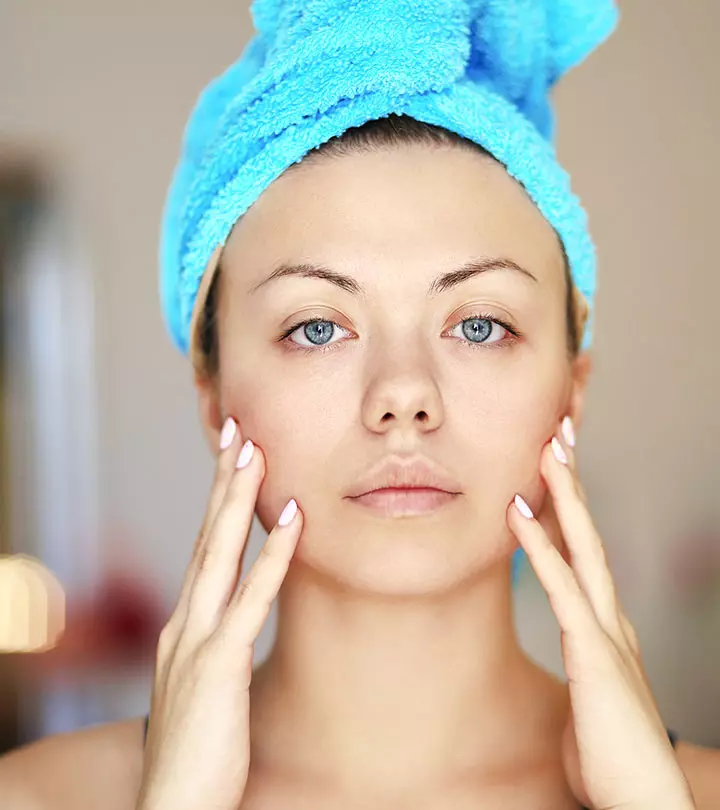
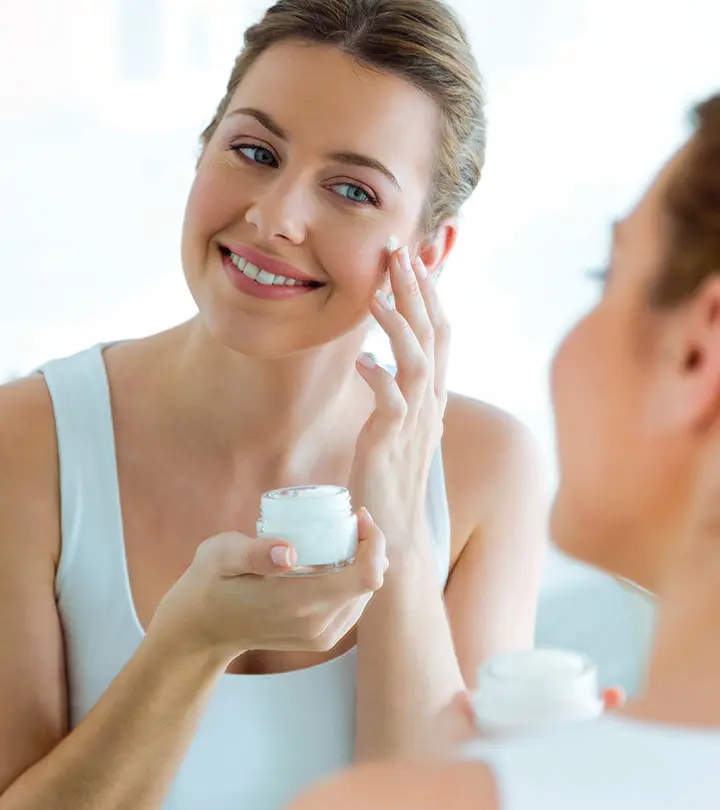

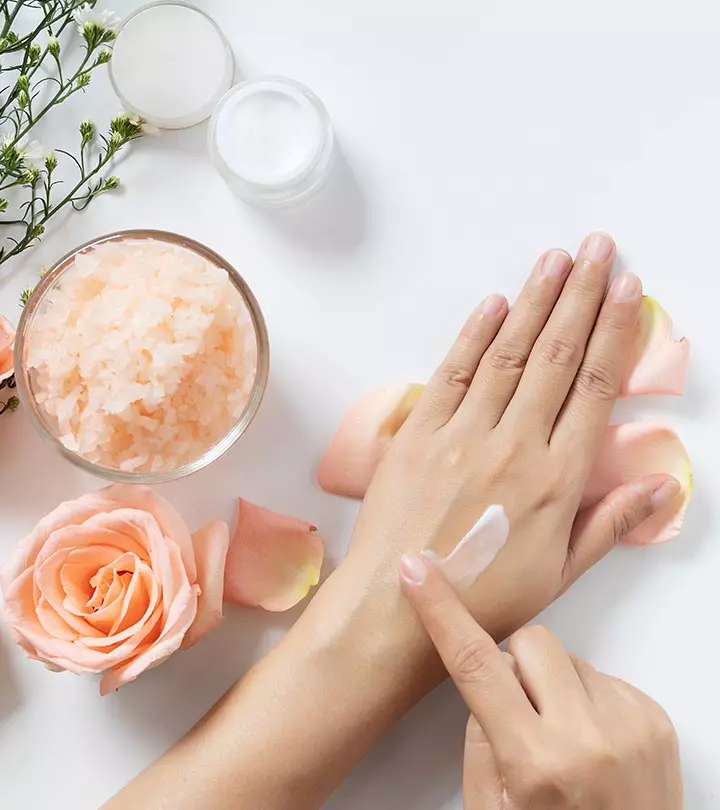

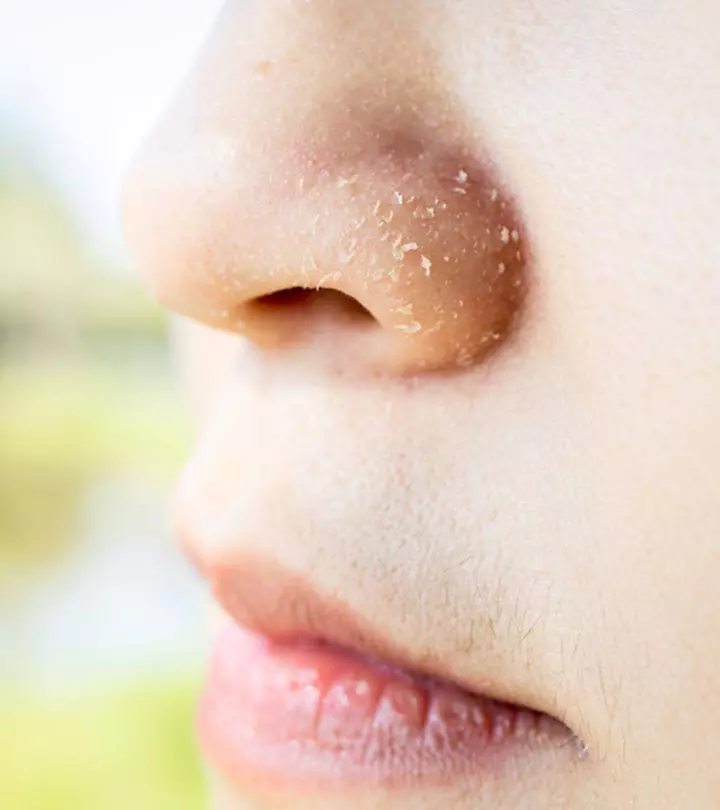

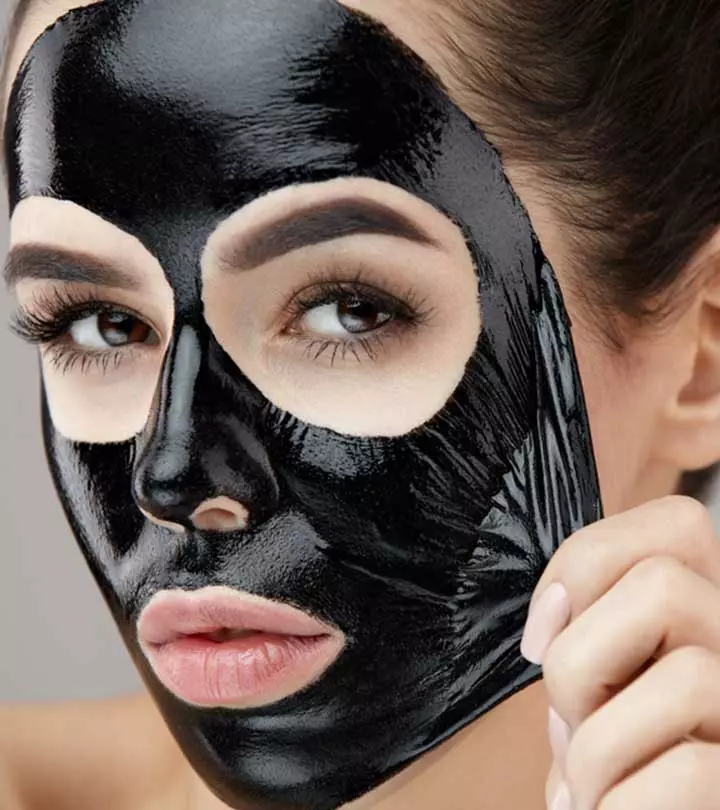
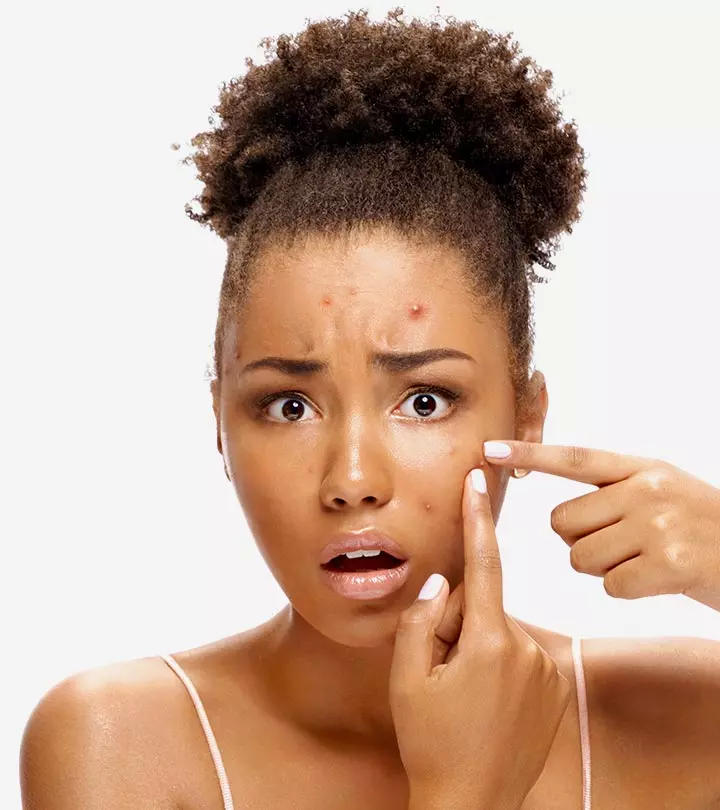
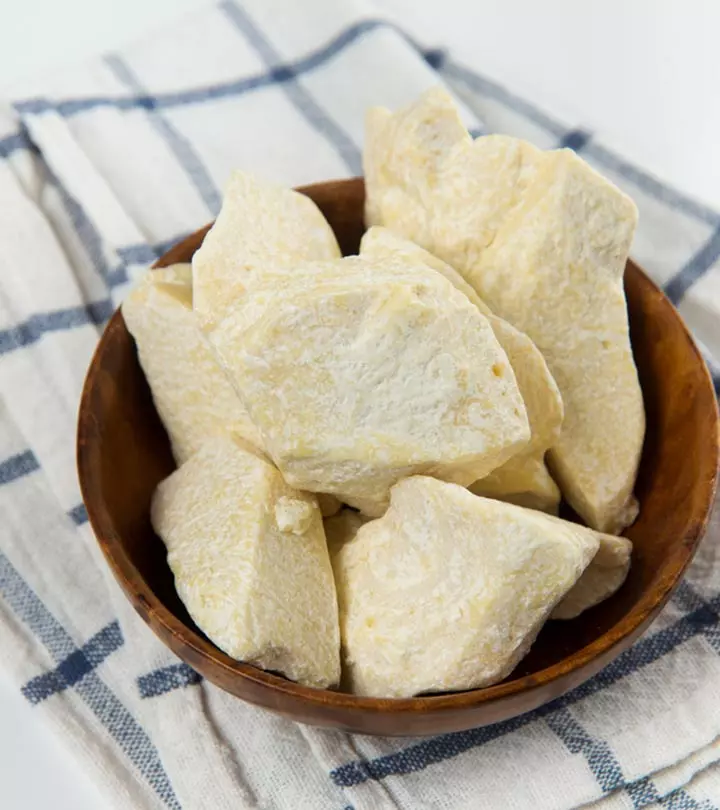
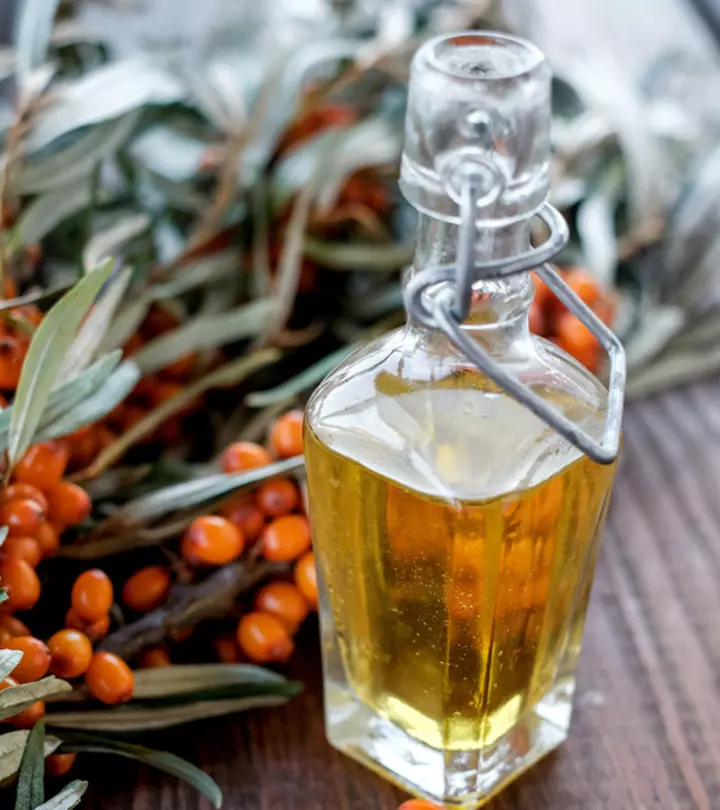
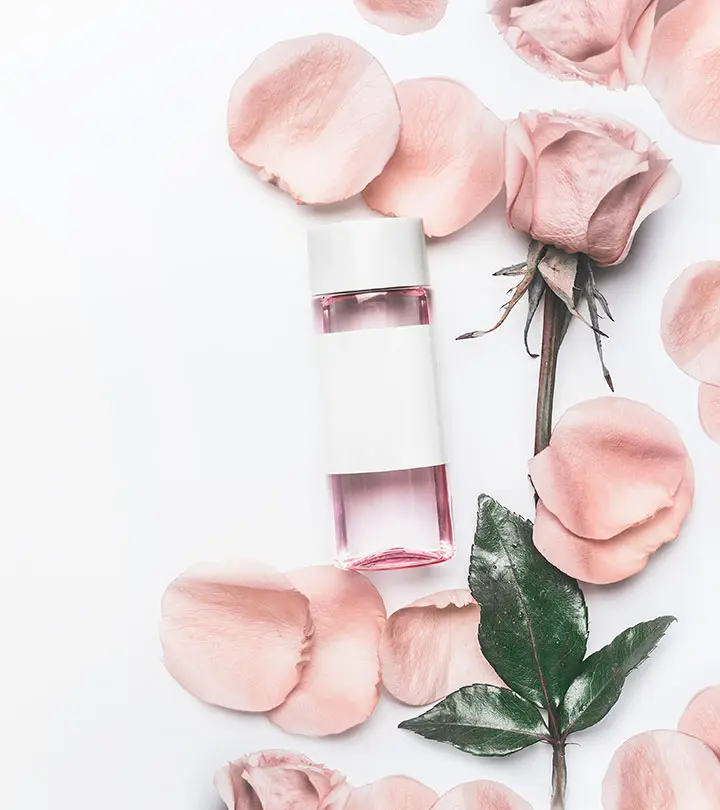
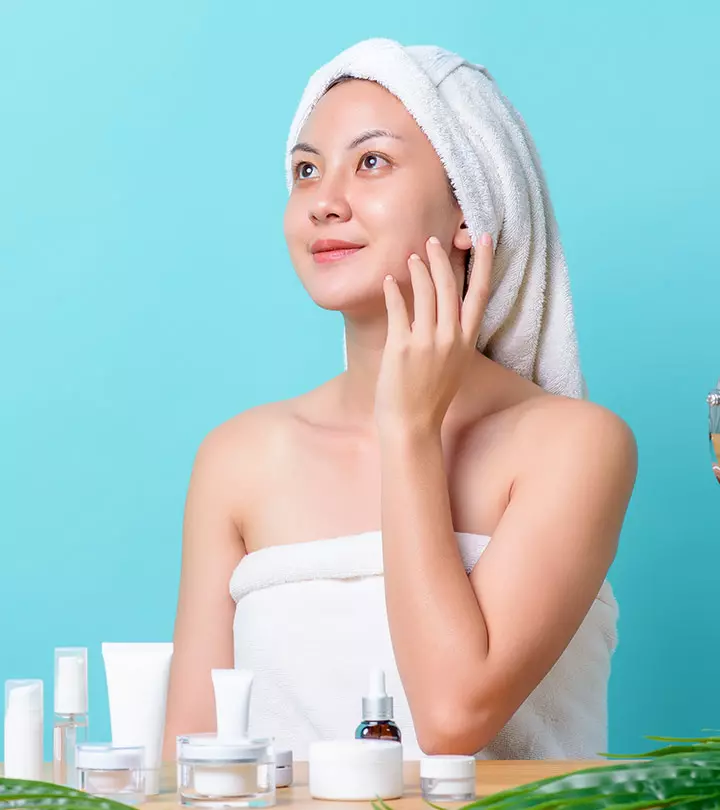

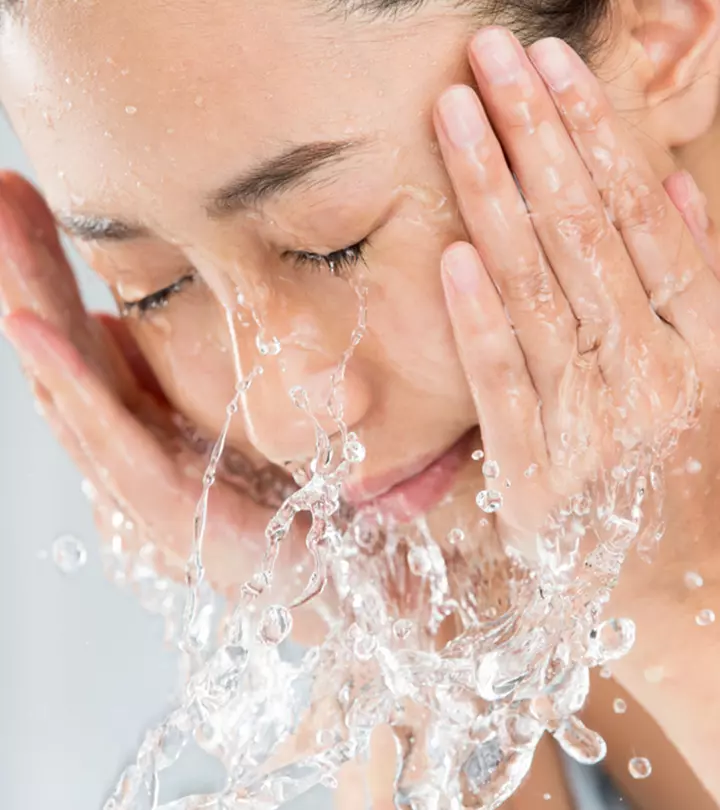
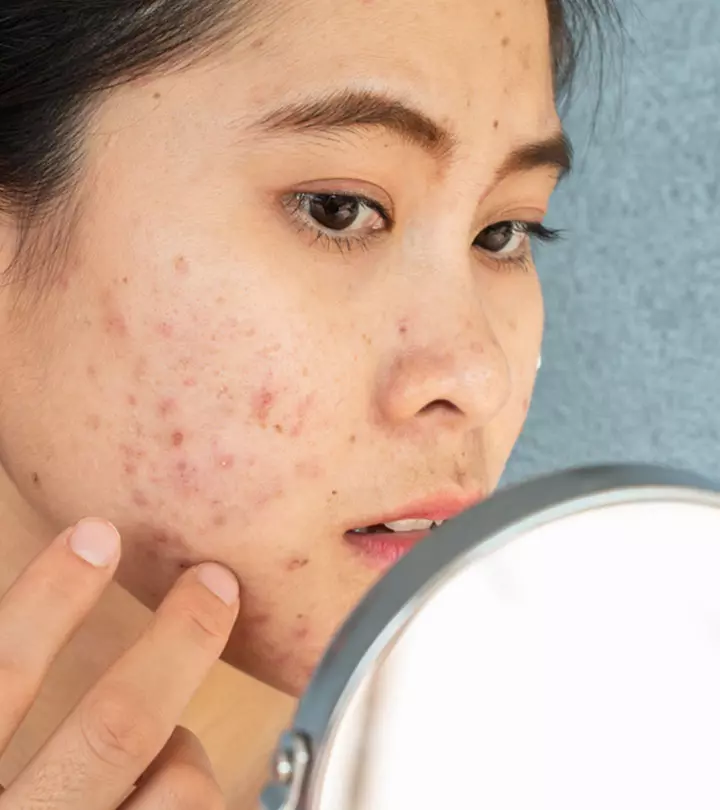

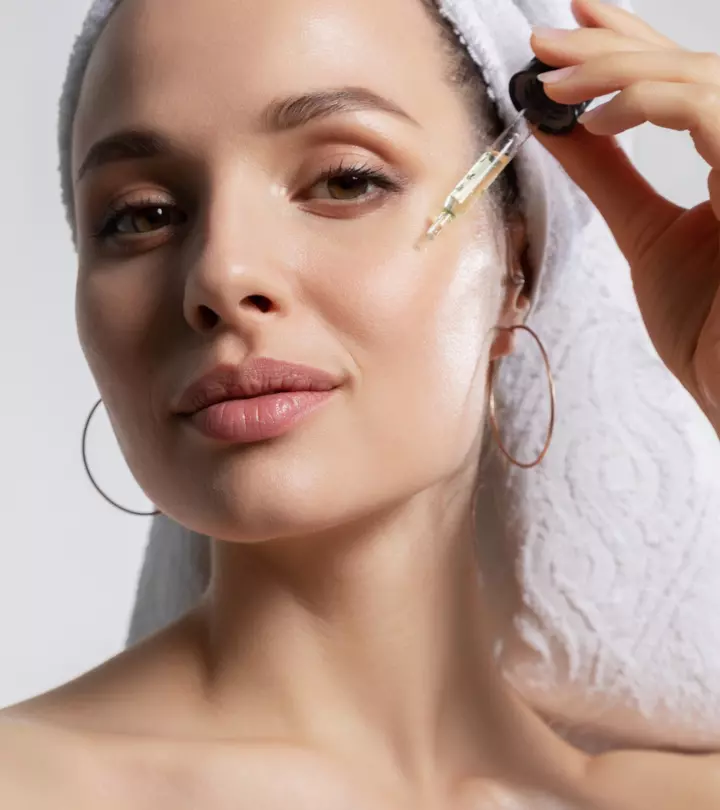
Community Experiences
Join the conversation and become a part of our empowering community! Share your stories, experiences, and insights to connect with other beauty, lifestyle, and health enthusiasts.